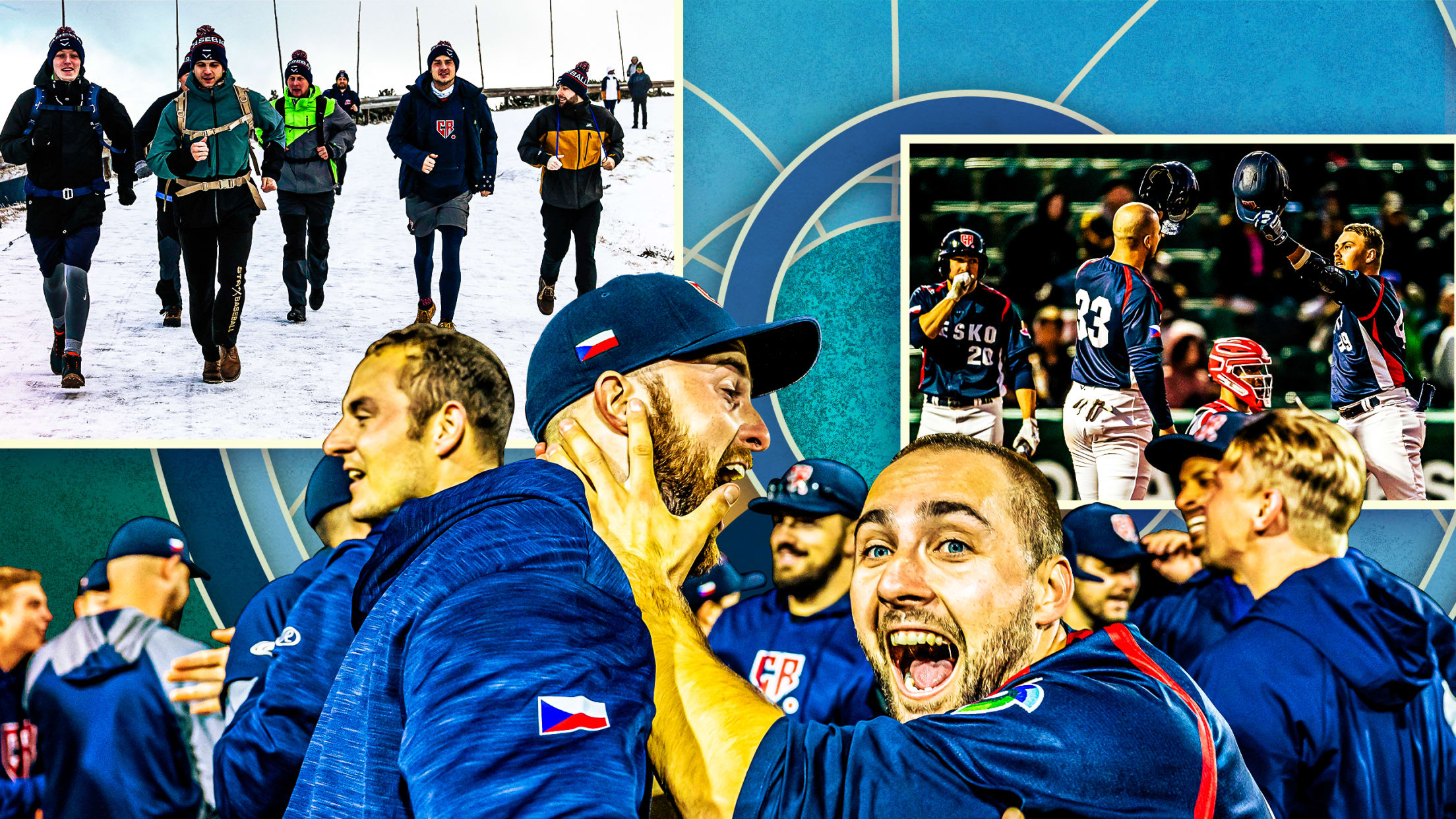
The Czech Republic baseball team will steal your heart?
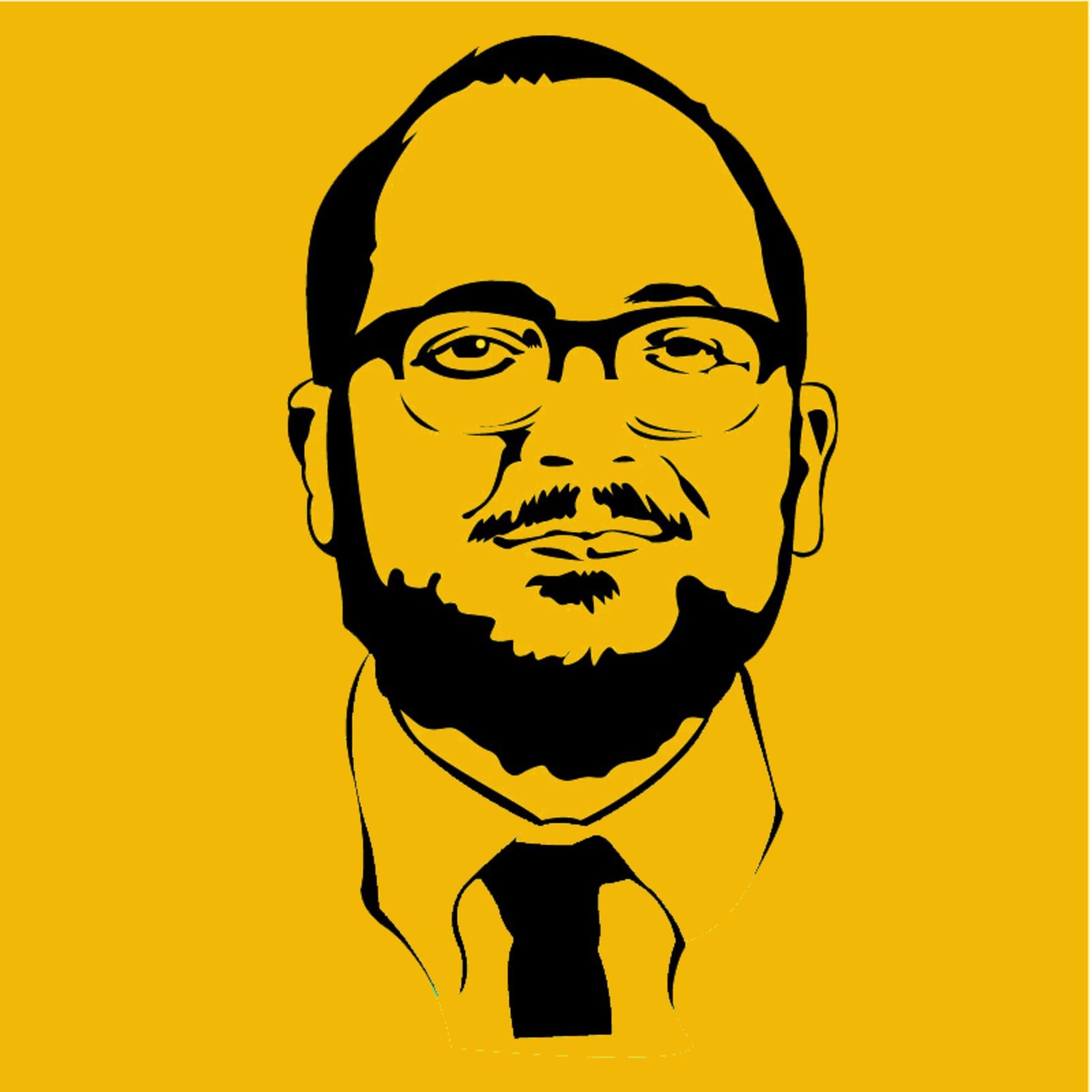
It shouldn¡¯t have been a contest. Spain was the heavily favored nation at the World Baseball Classic Qualifiers in Regensburg, Germany, this past September and had already defeated the Czech Republic, 21-7, in the first game of the tournament. Its roster was filled with ex-Major Leaguers like Rhiner Cruz and Engel Beltre and exciting young prospects like Noelvi Marte (No. 29 as ranked by MLB Pipeline).
Compare that to the Czech Republic¡¯s roster: Nearly every player was born in the small European nation and played in its amateur league, the Czech Baseball Extraliga. The country hadn¡¯t produced a Major Leaguer since at least 1952, though current star catcher Martin ?ervenka has come agonizingly close with stops in Triple-A with the Mets and Orioles.
Nearly every player on the Czech roster holds day jobs, squeezing in practice and training around life, work and family. ?ervenka now works in sales, while captain and DH Petr Z?ma is a financial analyst. Center fielder Arno?t Dubov? teaches high school geography (and gives out extra credit when students can name that weekend's Extraliga scores); pitcher and former Pirates farmhand Marek Mina?¨ªk works in real estate while another of the team¡¯s starting pitchers, Luk¨¢? Ercoli, doubles as its media coordinator. Even manager Pavel Chadim coaches on the side. In his day job, he¡¯s the leading neurologist in Brno.
There was a lesson in that first loss to Spain: Even though the game was called early due to the mercy rule, the Czech Republic hammered three home runs and returned some life to its players in its final few frames.
¡°It was devastating,¡± Dubov? said. ¡°But at the end of the game, we scored a couple of runs, and got the feeling that we can beat everybody.¡±
They learned to play without fear.
¡°At that point, we knew this is how we have to swing, we have to look for our pitches no matter what the score is,¡± Zyma said.
A win against France and a come-from-behind victory against Germany set up the rematch in the finals, with the winner advancing to the World Baseball Classic.
Spain, with its wealth of talent, should have won. But this time, they didn¡¯t.
Martin Schneider ¨C arguably the greatest shortstop and pitcher in Czech history (he¡¯s also a firefighter, natch) ¨C pitched six innings, giving up just one run. He had thrown just 19 innings during the season and was therefore only supposed to pitch in relief. But with everything on the line, Chadim asked him to start.
"When Pavel asked me, I said, 'Hey, you know me. I'm [willing to] die out there tomorrow. So, it's up to you. It's your decision,'" Schneider said. "I was ready for it. I was prepared for it. And I did my best."
After a heartbreaking loss in the 2017 Classic Qualifiers -- and failing to reach the 2020 Olympics -- it had finally happened: For the first time in Czech baseball history, the nation would be playing in the World Baseball Classic.
¡°At that point my eyes just exploded,¡± Zyma said after the last out was recorded. ¡°I don't even know how I climbed over the railing. All I know was a few elbows, a lot of sprinting, and I was just maybe worried about my glasses. Once I got into the dog pile, I was just screaming and basically beating everybody. It was a great moment. And I was thinking, ¡®Is this really happening? Are we finally [celebrating] a great win?¡¯¡±
¡°The celebration was just pure joy, pure happiness," Schneider said. "A lot of smiles, a lot of drinks, a lot of dancing, singing, some cheers of joy. Yeah, we enjoyed it. Can I say more?¡±
Some players even skipped out on sleep before boarding the team bus back to the Czech Republic in the morning. But for ?ervenka and a handful of other players, they quickly gathered their things and were on the road following the biggest victory in their baseball careers.
¡°I actually had to leave early,¡± ?ervenka said, ¡°because I had to go to work the next day.¡±
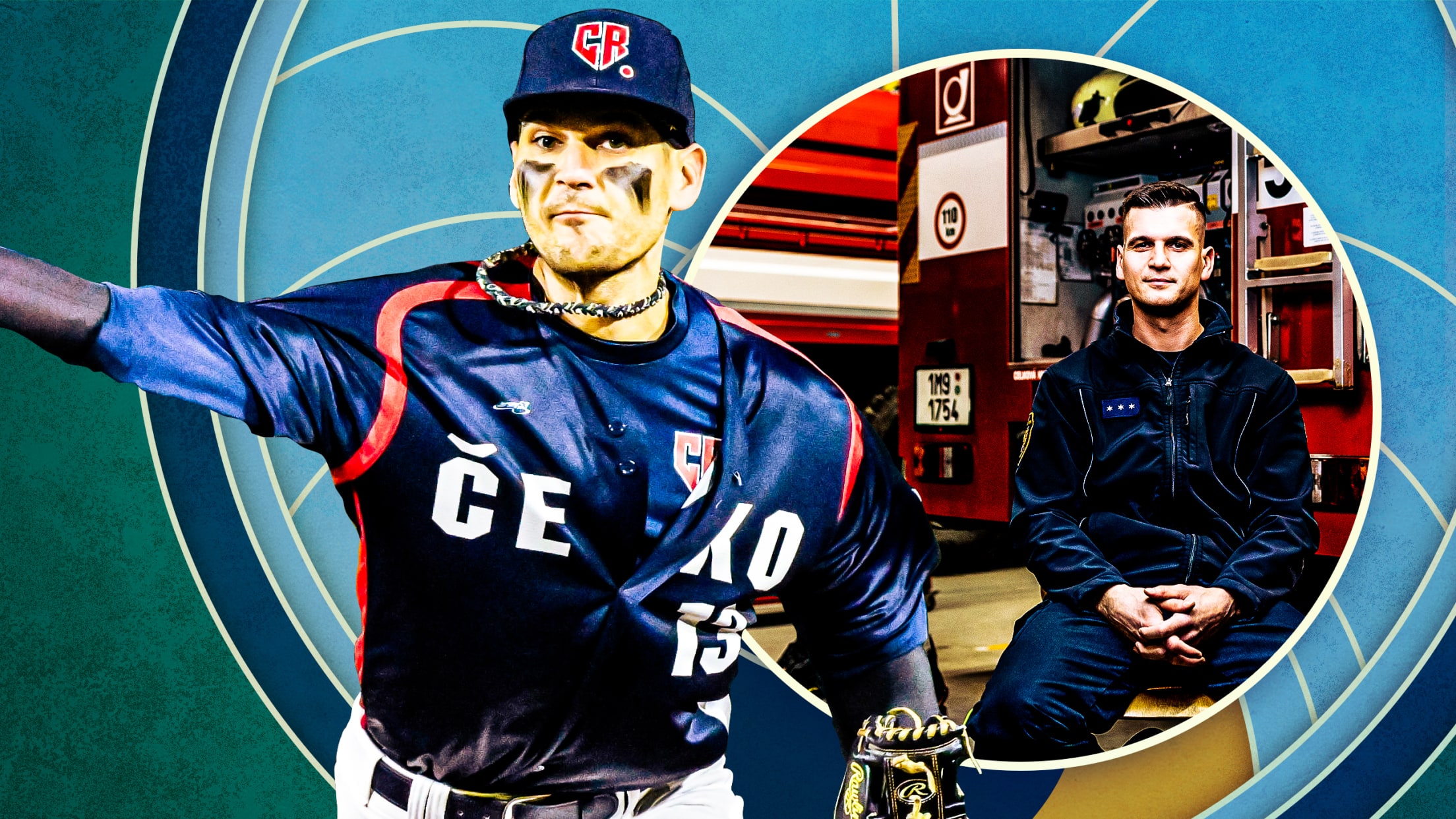
To know how the Czech Republic national team got here, with its group of amateurs set to compete against some of the best baseball players in the world, you have to look back at its past. Unlike in other European countries like Germany where the game grew around American military bases, the Czech Republic has its own unique history. When Czechoslovakia was under communist rule, baseball was often looked upon with suspicion. It was only thanks to Cuba's success in the sport that people were even allowed to play it at all.
After some earlier fits and starts, baseball returned to the country in the 1960s and '70s as student clubs and softball teams switched over to hardball. The Extraliga started play in 1979 and a national team has been competing in international tournaments since 1982. After the iron curtain fell in 1989, U.S. coaches were allowed into the country to help teach players and hold instructional camps. Since then, the country has taken off, rising up the WBSC rankings along the way. The Extraliga now features eight teams in its first division, has its very own baseball card set, and every game is streamed live worldwide.
Once I put my uniform or practice gear on, I'm just a child once again. I run around and this is what I really enjoy and I love.
Captain Petr Z?ma
Chadim has been around the game for a long time -- first playing on the country's national team in the early 1990s and then managing its youth teams since 2003. He oversaw the nation's two trips to the Little League World Series in 2013 and '14 and coached nearly every player on the WBC roster at some point in their careers. He's seen the country's baseball evolution up close.
¡°Quantity, quantity, quantity,¡± Chadim said about the country¡¯s first goal in inspiring new baseball players a generation ago. ¡°We had just 2,500 players in the Czech Republic. Now we have 10,000. We started developing with under-10 teams, under-9, under-8, under-7, we now have an under-5.¡±
The next step came when the country imported Mike Griffin to be the manager of the national team in 2012. The current head of the Pro5 Baseball Academy in North Carolina -- who will return as a bench coach under Chadim in this Classic -- had one goal: Developing the program into one that could compete on the international stage. He focused on character, teamwork, and professionalism.
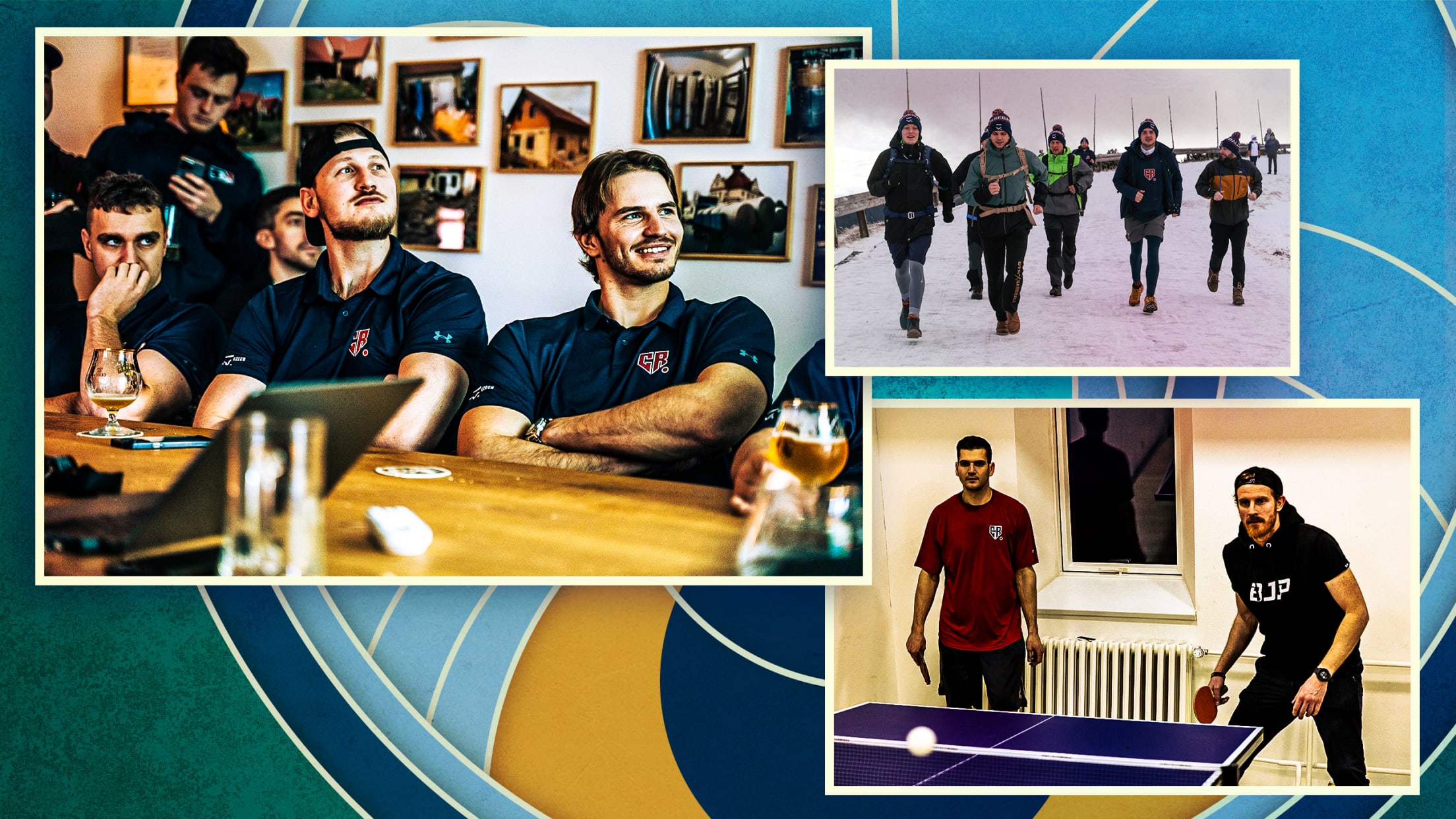
¡°We wanted to create the mentality that these guys, whenever they stepped on the field, they expected to have a game plan, they expected to win," Griffin said. "And that's the hardest thing to overcome in a developing [baseball] country.¡±
They started with nutrition, ensuring players had quality meals when traveling and competing in tournaments. They provided strength training and conditioning, with access to gyms to stay in shape. Griffin encouraged them to play college baseball in the states, with many even living with him for months at a time.
¡°We felt like that helped them make the sacrifices to go that extra mile,¡± Griffin said. ¡°And then we expected all the national team players to be on the field five days a week. Some days, it might be an hour-and-a-half. And then some days, it might be a full three to four hours-plus."
Two moments made Griffin think that the plan was working.
The first came at the 2017 World Baseball Classic Qualifiers in Mexico. After losing to the host country by a narrow 2-1 score to begin the tournament, the Czech team lost a 7-6 heartbreaker to Nicaragua in extra innings. They may have lost those games, but they were on the right track.
The other came during the 2019 European Championships, where the top five teams would get to play in the 2020 Olympic Qualifiers. It made a strong finish imperative. So, when the Czech Republic beat the Netherlands, 8-6, early in the tournament with their best pitchers on the mound, they knew this was working.
"We decided that we were gonna throw our best arms against Holland," Griffin said. ¡°We felt like we needed to make a statement that we belong at that level, and we want to see our best against their best. Whereas before, a lot of times you¡¯d throw your last pitchers and try to win the other games at the tournament.¡±
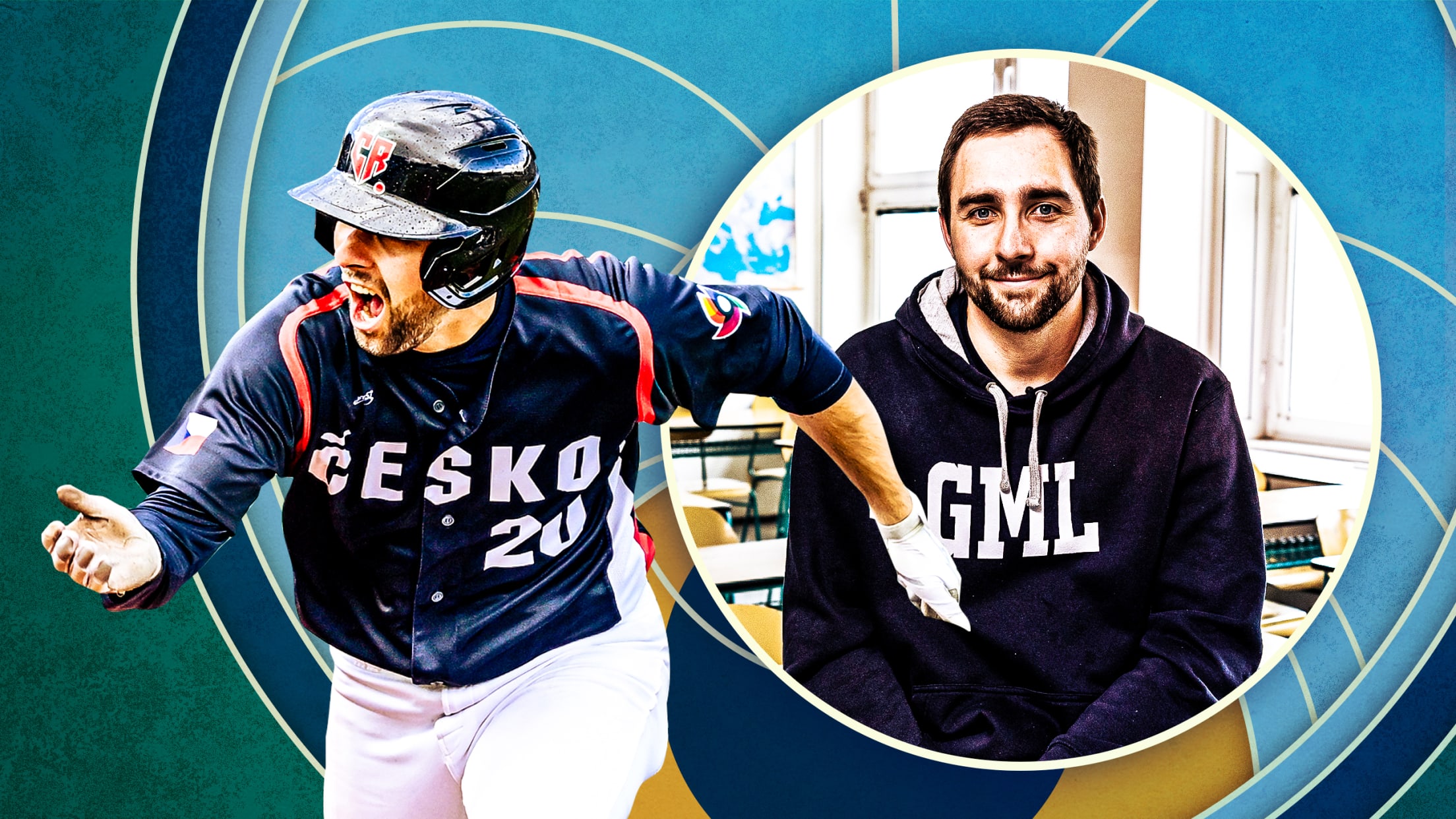
Given the intense time commitment, you might think it's probably taxing to play for the Czech national team -- that is, unless playing baseball is your number one passion and love in life. Fortunately, that's exactly how everyone on this team feels.
¡°Baseball and a personal life and having a job, it's really tough," Dubov? said. "Normally people finish at four, then go to the practice at five and finish a two-, maybe three-hour practice. Then we go home and you have to spend some time with your family, or girlfriend, with the kids. But the passion for baseball -- we are not doing it for money, we are doing it because we love it.¡±
?ervenka's average day sees him wake up at 6 a.m. to get to the office at 7 and work until about 4 p.m.
"And then I drive back home, go work out. After the workout, grab myself a meal, have my dinner, and then go to practice. We usually start around 8:00, 8:30 and finish around 10:30 or 11:00."
There¡¯s not a minute in the day that ?ervenka has for anything except for work -- which he needs to keep a roof over his head -- or baseball, something he can¡¯t live without.
¡°Every now and then, when I'm at work, I do think about hitting,¡± ?ervenka said. ¡°It's what I've been doing my whole life. I mimic my swings in the office here and there, and just try to figure out what I can do better.¡±
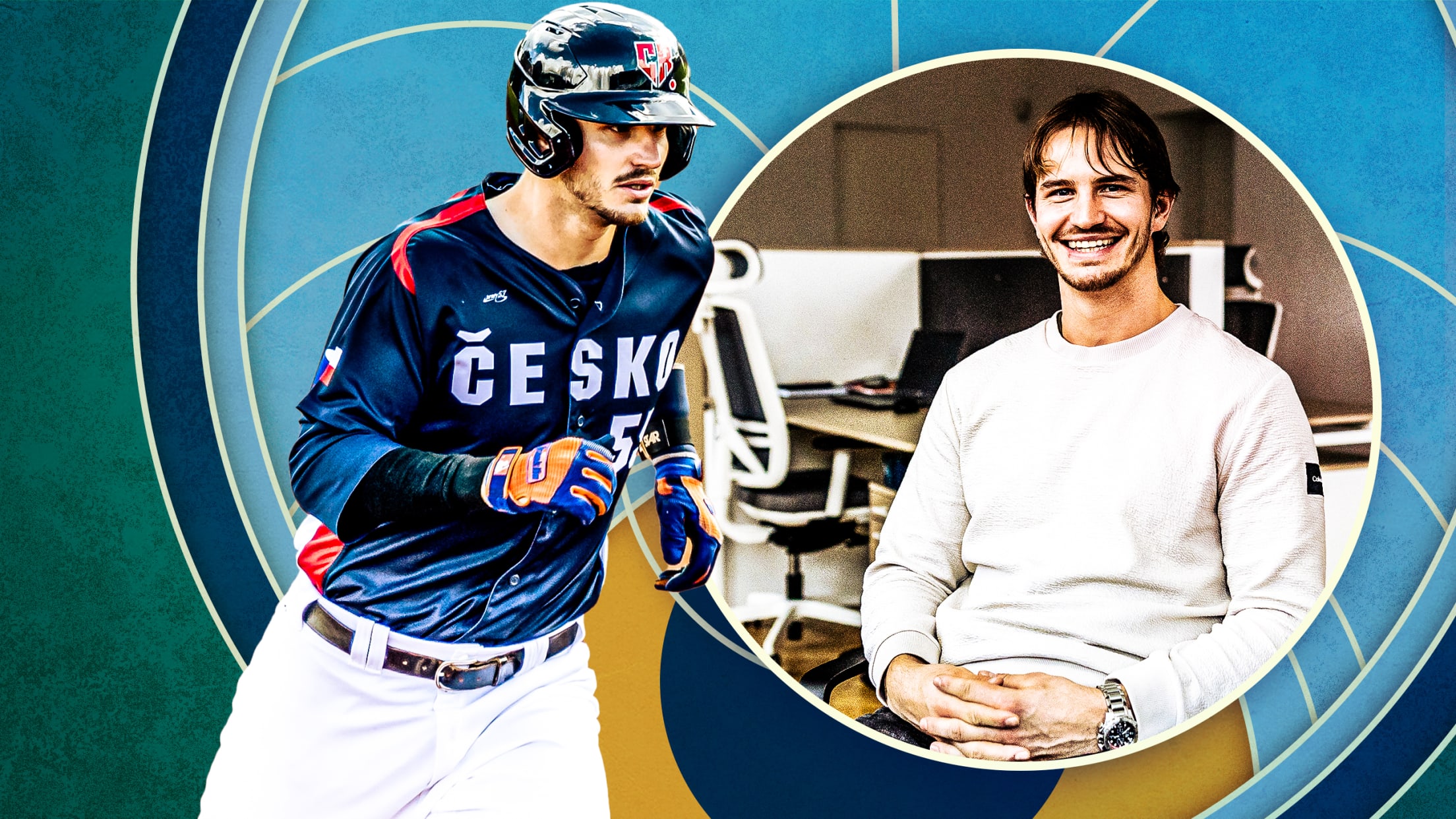
"Once I put my uniform or practice gear on, I'm just a child once again," said Z?ma -- whose family helped found the baseball and softball club Eagles Praha. "I run around and this is what I really enjoy and I love.¡±
Schneider's schedule is even crazier: As a firefighter, he's on duty for 24 hours before getting 48 hours off. That means he misses one out of every three Extraliga games during the regular season, so he can be on duty.
¡°I'm saying that we are like fanatics," Ercoli said. "We are sacrificing work, we are sacrificing families or family time, and getting little money from it. We just love baseball and sacrifice everything to it.¡±
Having a job can make squeezing in the sport all the more difficult, but it can also offer some perspective that perhaps others, whose lives only revolve around baseball, don't have.
¡°If you see a young, 20-year-old guy [who suffered a] stroke hemiparesis, I thought, ¡®How you can be sad when your pitcher is crying because he gave up a home run in some game?¡¯¡± Chadim asked over lunch at his practice in Brno before calling in another patient from his waiting room. ¡°If you see how hard life is, how hard many people¡¯s lives are -- it helps me. Life is short, enjoy every day. It¡¯s my motto, what I believe.¡±
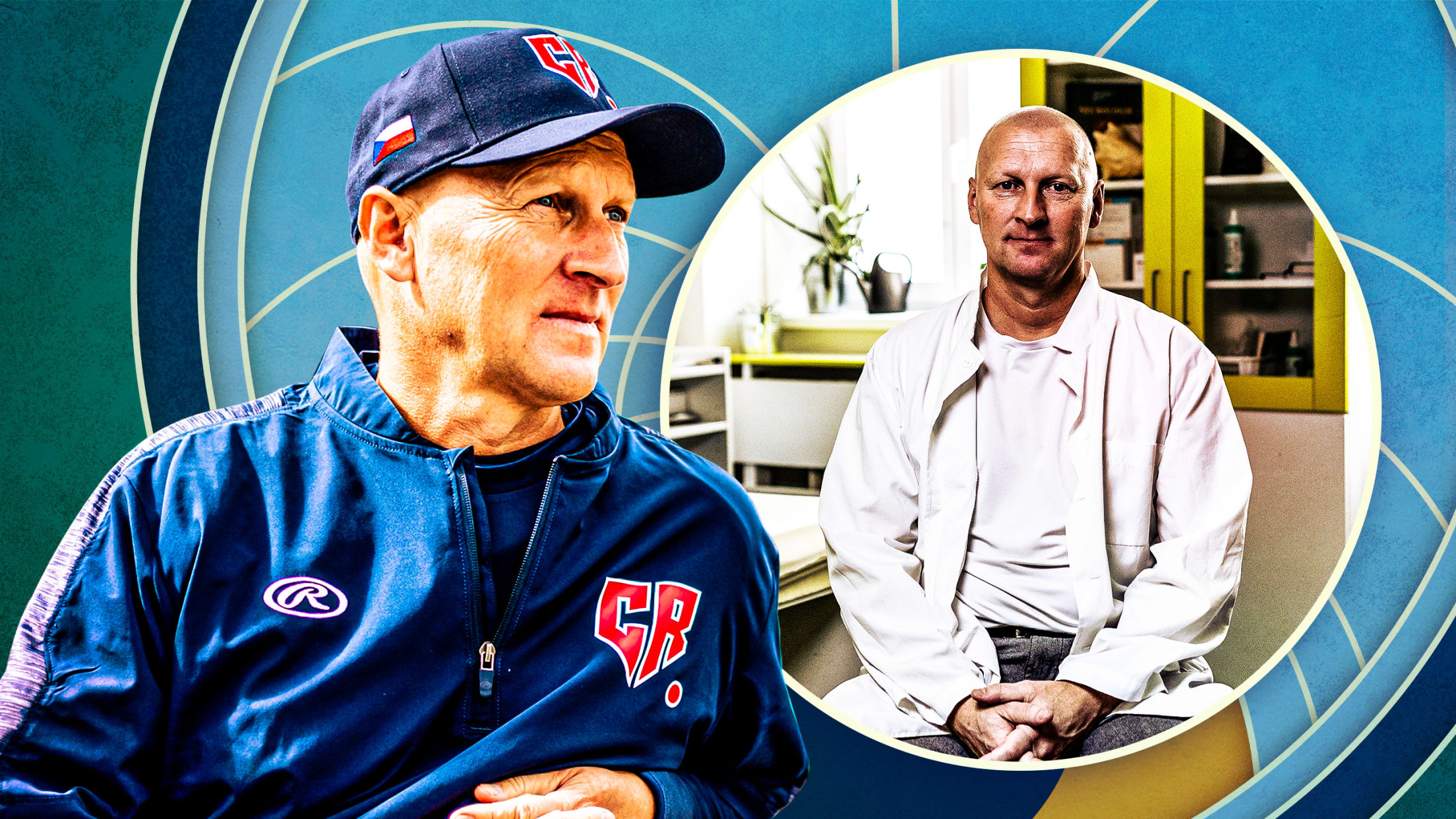
Though the love of the game is the thread that connects all of these players, it is how they genuinely think of each other as a family that keeps them going. It's a word that comes up in every interview and a code by which the players truly live. When they¡¯re not together on the field, they¡¯re meeting for dinner or driving across the nation to meet for snowy, mountainside hikes together.
¡°For me personally, the team is more than family,¡± Chadim adds. ¡°In a family, you have a brother, you have a sister and you cannot change it. They didn't do anything to be in this group. But the team is perhaps better because the players and the coaches work so hard to be part of this family.¡±
¡°You can feel it, how much we stick together in the national team,¡± Schneider said. ¡°It¡¯s just a fun group of guys."
We shocked the world many times -- and we did the same thing in baseball. With this achievement, I think we will write the Czech Republic in the history of baseball.
Luk¨¢? Ercoli
?ervenka and Ercoli even grew up playing baseball together in Roudnice nad Labem, a small village about an hour¡¯s drive from Prague. Now that they¡¯re adults and have been doing this for 20 years, of course things get a little loose between them when facing each other in the Extraliga.
¡°Yeah, so I gave him a chance to strike me out,¡± ?ervenka said, a broad grin on his face. ¡°I let the first two pitches go, it was 0-2. He ended up walking me anyway.¡±
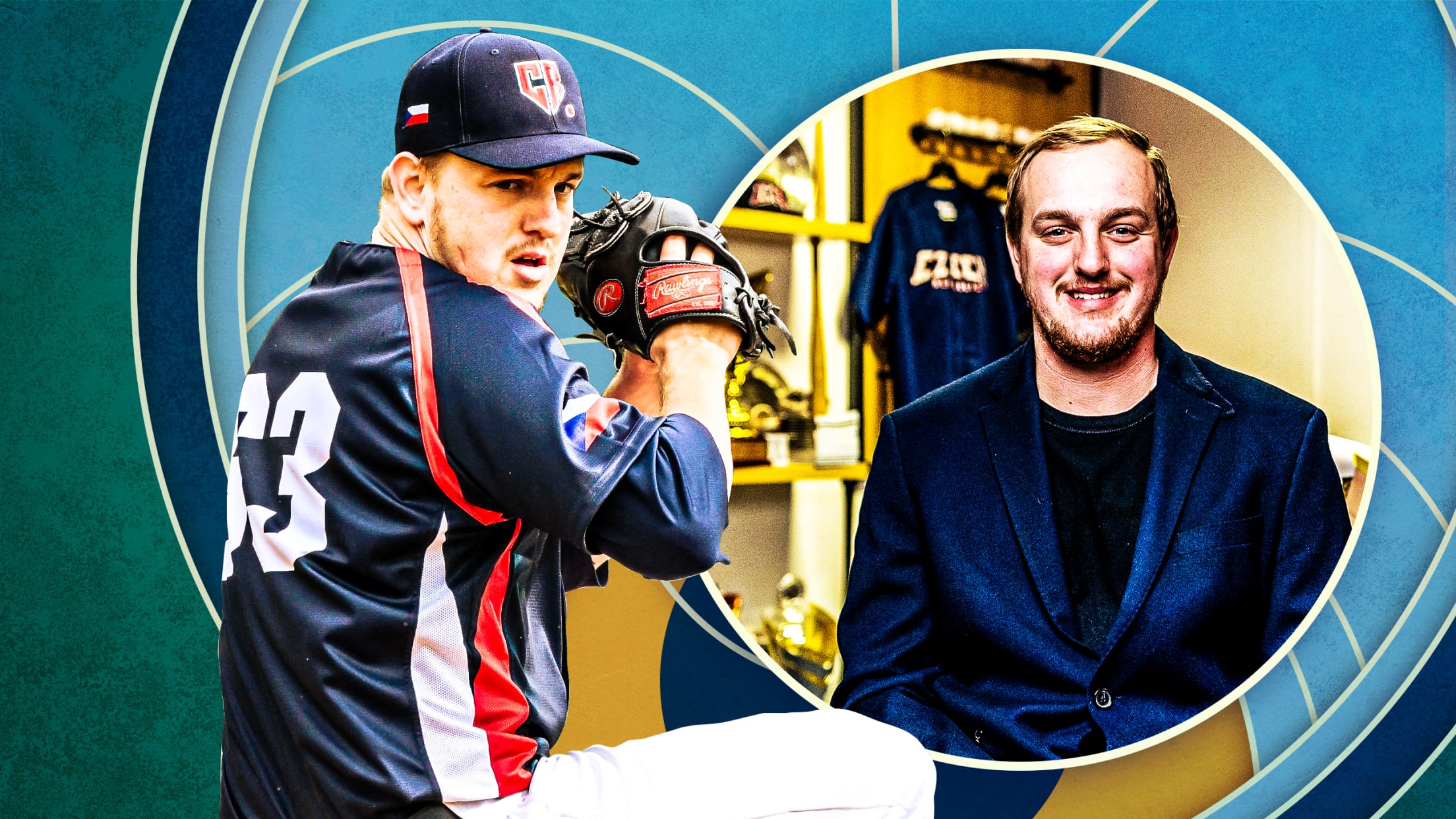
When Pool B begins play next week in Tokyo, few will pick the Czech Republic to advance. While former Major Leaguer Eric Sogard will now join the Czech Republic for the tournament, many assume the country will struggle to measure up against nations like Japan and Korea, whose lineups feature superstars like Shohei Ohtani and reigning KBO MVP Award winner Jung-Hoo Lee.
¡°We proudly call ourselves ¡®The heart of Europe,¡¯ because the Czech Republic is really situated in the middle of Europe,¡± Ercoli said. ¡°We have barely over 10 million citizens, so it's a really small country. But I think we¡¯ve shown many times that the world has to contend with the Czech Republic. We have great athletes in ice hockey: Jarom¨ªr J¨¢gr, Dominik Hasek, David Pastr¨¾¨¢k. We have great soccer players. We shocked the world many times -- and we did the same thing in baseball. With this achievement, I think we will write the Czech Republic in the history of baseball, as well.¡±
They go to Tokyo ready for anything to happen.
??¡°We want to show that the Czech Republic ¨C a small country ¨C can do big things,¡± Dubov? said. ¡°And for me personally, I hate losing. So every loss moves me, pushes me to the limit and to get better.¡±

The names on the back of their shirts may not be known around the world like the superstars that litter the rosters of other teams, but that doesn¡¯t matter to them. This is baseball and sometimes odd things happen. Sometimes David defeats Goliath.
¡°Every game you go into, you try to win,¡± ?ervenka said. ¡°It starts 0-0, really. So you just do your best, see what happens. Obviously we're not going to be the favorites, everybody knows that. But we weren't favorites at the Qualifier. We still qualified, so you never know what can happen.¡±
This trip -- which will require more vacation days and even a substitute teacher in Dubov?¡¯s case -- is the culmination of a lifelong goal: Czech baseball will now be recognized on an international stage.
¡°Sometimes I still feel like, ¡®Am I going to be there? Really?¡¯¡± Schneider asked. ¡°You're trying to aim for something, but this is something that I never even dreamt of. When you're young, you want to get to the big leagues. You know from the Czech Republic, that it's a very, very hard thing to do. But this is as close to that dream I had when I was young.¡±
They¡¯re not scared of the challenge; they embrace it. Ask each player whom he hopes to face and you'll hear a similar answer: ¡°Shohei Ohtani.¡± Everyone wants the chance to beat the best in the world.
¡°We have lots of passion,¡± Z?ma said. ¡°We like to fight. We hate to lose. We believe that we can actually shock some people.¡±
Ercoli, who faced Ohtani at an international youth event earlier in his career (Ohtani doubled and walked) has a plan if the superstar steps into the box.
¡°I¡¯ll throw an inside fastball to Shohei Ohtani and see what happens -- if he will hit a home run or not,¡± Ercoli said, dreaming of the possibility. ¡°And my strikeout pitch is a slider. Maybe Shohei will get a fastball inside and then a back-foot slider. We¡¯ll see if it will work or not.
¡°There are no other options.¡±